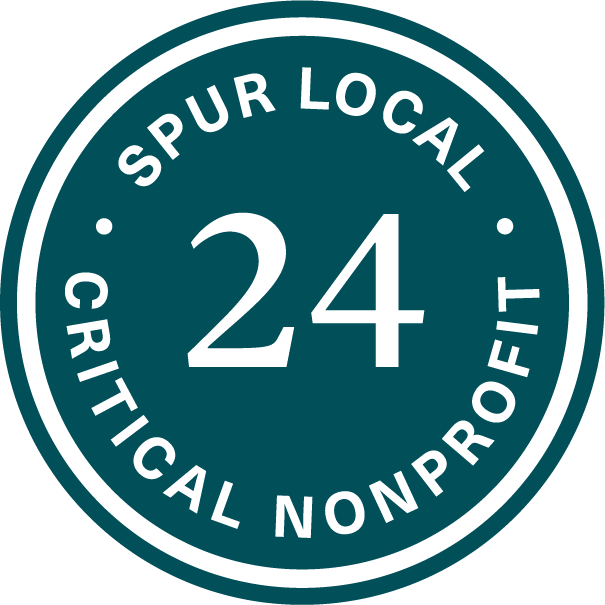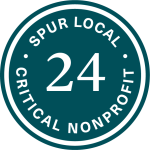May 4, 2023
Dear Members of the DC Tax Revision Commission,
Thank you for this opportunity to provide written comments regarding the important work of the TRC. My name is Melody Webb, and I am Executive Director of Mothers Outreach Network (MON) and co-lead of the DC Guaranteed Income Coalition. I am also a Ward 6 Southwest DC resident and a native Washingtonian. MON is a DC based non-profit that uses direct representation, legal information workshops, policy advocacy, mutual aid, and holistic strategies to support and empower DC mothers seeking economic security while facing the involuntary removal of their children to the foster system. Our DCGI Coalition mission prioritizes the agency and dignity of our DC neighbors experiencing poverty.
As a member of the Fair Budget Coalition (FBC), MON supports the recommendations and demands made in the FBC/Just Recovery DC’s open letter to the TRC. We encourage the TRC to pay particular attention to the context the letter provides regarding DC’s racial wealth gap and the role that the District’s tax code can play in either contributing to or alleviating racialized inequality. If the Commission is to achieve its goal of producing a progressive tax code that promotes racial equity, this information must inform its work and final recommendations. We further encourage the Commission to consider FBC’s FY 2024 Fair Taxes and Public Deals Platform in its entirety.
Beyond our work with the FBC, MON also co-leads the DC Guaranteed Income Coalition. The Coalition’s mission encompasses two primary overarching goals. First, we aim to pass a permanent guaranteed income for all in Washington, D.C., enabling all marginalized individuals and communities to meet their basic needs and live with dignity and joy. In addition, we seek to protect and strengthen the current social safety net through policies that advance economic mobility.
The Coalition’s mission is a moral one, to achieve a permanent guaranteed income that provides unconditional payments to our District neighbors, ensuring everyone lives above the federal poverty line. Poverty, we know, has consequences that include family destabilization, CFSA involvement, and family separation, to name just a few. This makes it all the more damning that we allow approximately 23 percent of children in DC to live below the federal poverty line. Moreover, poverty in DC is highly racialized. Black children 85% of the District’s children growing up in poverty are Black, while only 1-2% are White. This kind of disparity tells us that these children and families are suffering from systemic, not personal, failings. They need the empowerment and agency that comes with access to cash, not punitive action from the District government.
A comprehensive guaranteed income policy (sometimes called Guaranteed Minimum or Guaranteed Basic Income) allocates to every member of a community subsisting below an income floor an unconditional payment that raises them above this basic income threshold, regardless of their employment status or other circumstance. In the last several years, guaranteed income pilots have proliferated across the country, from Stockton, California to Cambridge, Massachusetts. In Washington DC, THRIVE East of the River, one of the earliest and largest cash transfer programs in the country, paid $1,100 monthly for five months to nearly 600 DC residents in Wards 7 and 8 after the onset of the pandemic. Additionally, the publicly-funded Strong Families, Strong Futures pilot is currently providing a guaranteed income to new and expectant mothers in Wards 5, 7, and 8.
Most of these recent guaranteed income pilots have provided direct cash payments to families. An alternative and highly promising approach to achieving a guaranteed income is through the use of the tax code. As we saw in 2021, when the American Rescue Plan Act briefly provided an expanded CTC to families in the form of monthly payments, targeted tax credits have immense potential to alleviate poverty and support struggling families. Indeed, the monthly CTC, which functioned as a temporary guaranteed income for all but the highest-earning families, cut childhood poverty nearly in half, decreased families’ reliance on high cost financial services (like payday loans), meaningfully reduced evictions among recipients, and improved families’ food security, among other benefits. Moreover, the federal EITC, though flawed, is one of the single most effective national anti-poverty programs in place today.
Over the last few years, Washington DC has led the way on expanding local EITCs, so that it is now the most generous in the nation. This is a powerful step in the right direction. The TRC now has the opportunity to build on that commitment to using the tax code as a tool for racial justice and equity. We call on the TRC to fully explore and recommend opportunities to provide direct cash assistance to low-income DC residents through targeted refundable tax credits. Specifically, we encourage the TRC to endorse the following:
- Create a local refundable Child Tax Credit and a tax credit for low income families as proposed in the Financial Support for Families with Children Amendment Act (FSFC): These two tax credits in conjunction with each other have the potential to cut childhood poverty in the District by approximately 10%. Together, they would create a comprehensive support system for Black mothers and their families in the District, addressing economic challenges and diverse community needs.
- Automate the EITC: The District has one of the most generous EITC in the country, but only about 75 percent of eligible taxpayers claim the credit they are entitled to. To fully reap the antipoverty benefits of the District EITC, the District should make its Earned Income Tax Credit (EITC) heavily or completely automated to ensure that all eligible workers receive the credit.
- Expand Section H: The Section H “circuit breaker tax” provides low-income residents who face high property taxes or rents compared with their income with a refundable tax credit. However, the maximum credit of $1225 is significantly below the support that would be necessary to alleviate the high cost of DC rent for low-income households. The credit’s cap should be raised or eliminated for renters to further support those most affected by the District’s affordable housing crisis.
To fund these proposals, we urge the TRC to recommend the following items from the Fair Budget Coalition’s 2024 Tax Platform:
- Raise real property tax on high value residential property – The wealthiest 20% of DC’s residents pay a lower percentage of their income in local taxes than the other 80%, an inequity driven largely by the District’s regressive real property tax. Wealthy DC residents also pay significantly lower real property taxes than their counterparts in surrounding areas, as the Commission heard from the Office of Revenue Analysis in September. To increase the progressivity and equity of the District’s tax code, the District should tax high value homes at a higher rate and use the revenue to fund targeted refundable tax credits for low-income households.
- Decrease the value of the exemption for estate taxes – Currently, the estate tax exempts $4 million from the value of the estate before taxes are levied. This exemption contributes to the ongoing racial wealth gap in the city, promotes intergenerational opportunity hoarding, and deprives the city of much needed revenue. Less than a decade ago, DC’s exemption was capped at $1 million. The exemption should be lowered once again to free up funding to support low-income households.
In 1968, Reverend Dr. Martin Luther King Jr said “I am now convinced that the simplest approach will prove to be the most effective – the solution to poverty is to abolish it directly by a now widely discussed measure: the guaranteed income.” Refundable tax credits such as the CTC and the EITC have already proved that the tax code is a simple and effective approach to move our community towards a guaranteed income and all the benefits that come with it. Washington D.C. has made important progress towards this goal with its local EITC, but more can and should be done. By endorsing these new and expanded tax credits, the TRC will accomplish its policy objectives and align our tax code with our city’s values.
Thank you for your attention,
Melody Webb
Executive Director, Mothers’ Outreach Network



